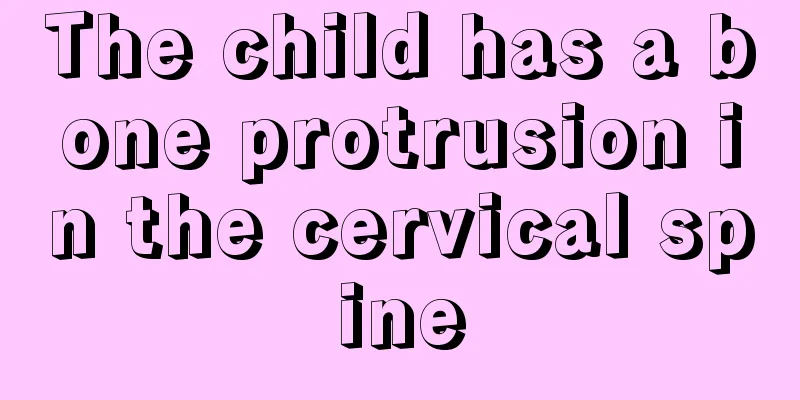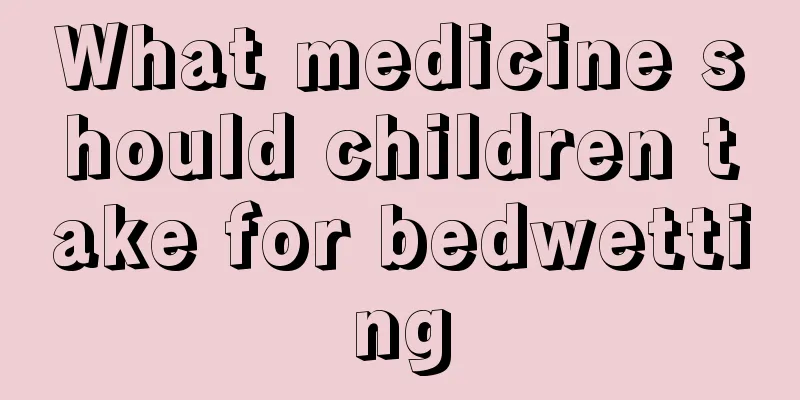How to treat tracheitis in children

|
Bronchitis is divided into acute bronchitis and chronic bronchitis. Although most of the patients with this disease are middle-aged and elderly people, some children are infected with bronchitis just after they are born. Bronchitis is generally caused by the patient's frequent coughing, and it is also related to our own immunity. So how should children with bronchitis be treated? How does bronchitis develop in children? 1. Infection by bacteria Infection is an important factor causing chronic bronchitis. If children have poor physical fitness, they will have poor disease resistance and be susceptible to viral infection and invasion. Therefore, the respiratory tract is often infected. If not treated in time, the disease will recur and worsen. Viral and bacterial infections are one of the main causes. 2. Children are invaded by external evils If the baby has a poor constitution or is not carefully treated, it is easy for external pathogens to invade and cause illness. If children are affected by wind evil entering their bodies, they will develop illness and damage the health of their lungs, which are primarily respiratory organs. If the lungs are invaded by external evil and compressed, it will cause coughing. In addition, after catching a cold, the baby will have symptoms of nasal congestion, dry nose, dry cough, dry throat and burning lips. 3. Children with Qi and blood deficiency If a child has congenital deficiencies, which manifest as physical weakness, if the exogenous cough cannot be cured for a long time, it may develop into a cough, resulting in lung yin depletion or lung and spleen qi deficiency. What to do with bronchitis in children? 1. Keep warm Temperature changes, especially cold stimulation can reduce the local resistance of the bronchial mucosa and aggravate bronchitis. Therefore, parents should add or remove clothes for their children in time as the temperature changes, especially cover the children with quilts when sleeping to keep the body temperature at around 36.5℃. 2. Feed more water Children with bronchitis have varying degrees of fever and a large amount of water evaporation, so you should pay attention to feeding the children more water. It can be supplemented with sugar water or sugar and salt water, or with rice soup or egg soup. The diet is mainly semi-liquid to increase the water content in the body and meet the body's needs. 3. Reduce fever Children usually have a low to moderate fever when bronchitis attacks. If the body temperature is below 38.5℃, there is generally no need to give antipyretics. Treatment should focus on the cause of the disease to solve the problem fundamentally. If the body temperature is high, older children can be cooled physically, such as by applying a cold towel to the head or bathing with warm water. However, this method is not suitable for young children. If necessary, they should follow the doctor's advice and use medication to reduce the temperature. |
<<: What to do if your child doesn't like drinking water
Recommend
What to do if children have smelly feet
It is said that only adults have smelly feet, but...
What to do if a 3-year-old child has a high fever and convulsions
Fever is a common disease in children, and most o...
How to treat baby rubella most effectively
How to treat baby rubella is believed to be what ...
4 month old baby skin allergy
Every change in the baby after birth is watched b...
What to do if your one-year-old baby gets angry
If your one-year-old baby has a fever, it may be ...
Treatment of cerebral palsy in children
Cerebral palsy is a very common disease. This typ...
At what age do children usually start losing their teeth?
Everyone will go through the process of tooth los...
Baby's upper body red spots
If your baby has a rash and fever, it is likely r...
What should I do if my child coughs and refuses to eat?
Coughing is a common clinical symptom. Many child...
What is the cause of acne on the baby's face?
When taking care of their babies, many parents al...
Why can't babies sleep well at night?
Babies should normally get enough sleep, sleeping...
How to deal with toothache in children? 5 ways to help you
Toothache is not a disease, but it is really pain...
Children's hands and feet allergies
Allergies are actually very common, but some peop...
Is it possible that childhood medulloblastoma is hereditary?
Brain jellyfish tumor is a highly malignant tumor...
What to do if your newborn baby eats too quickly
In our lives, there are many mothers with very ab...









